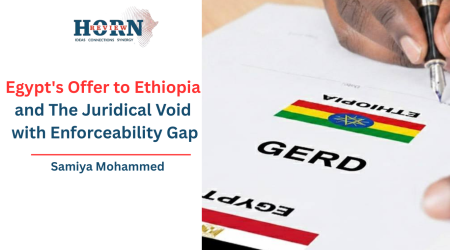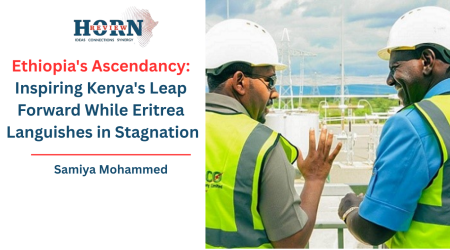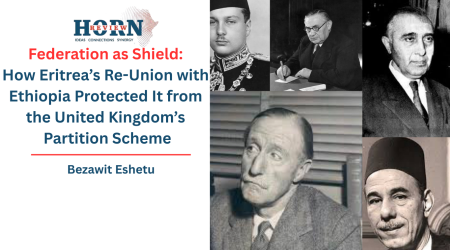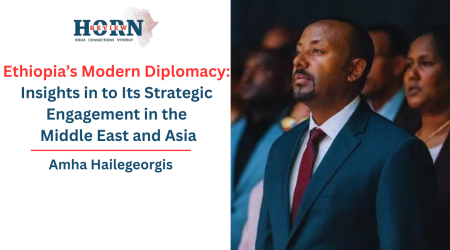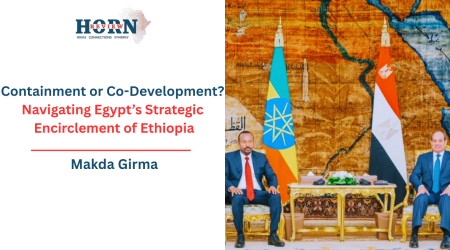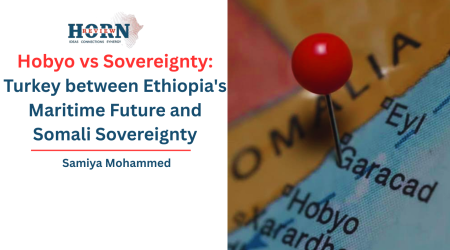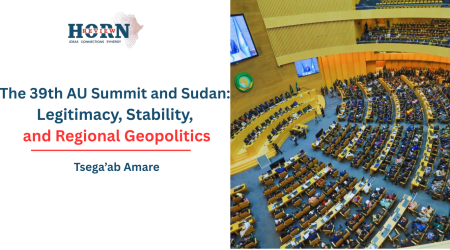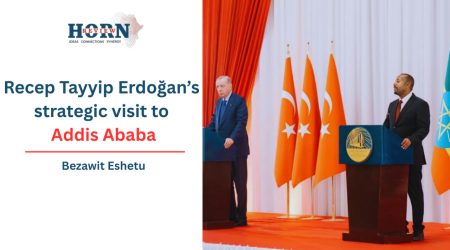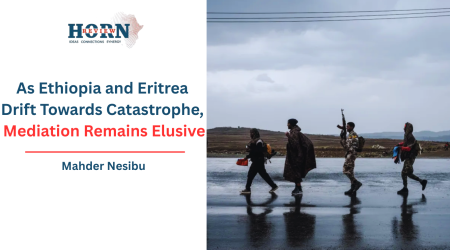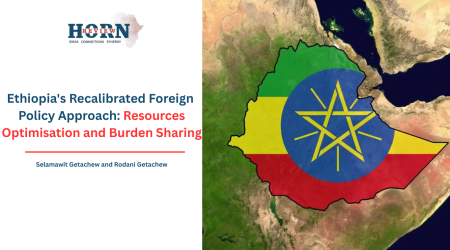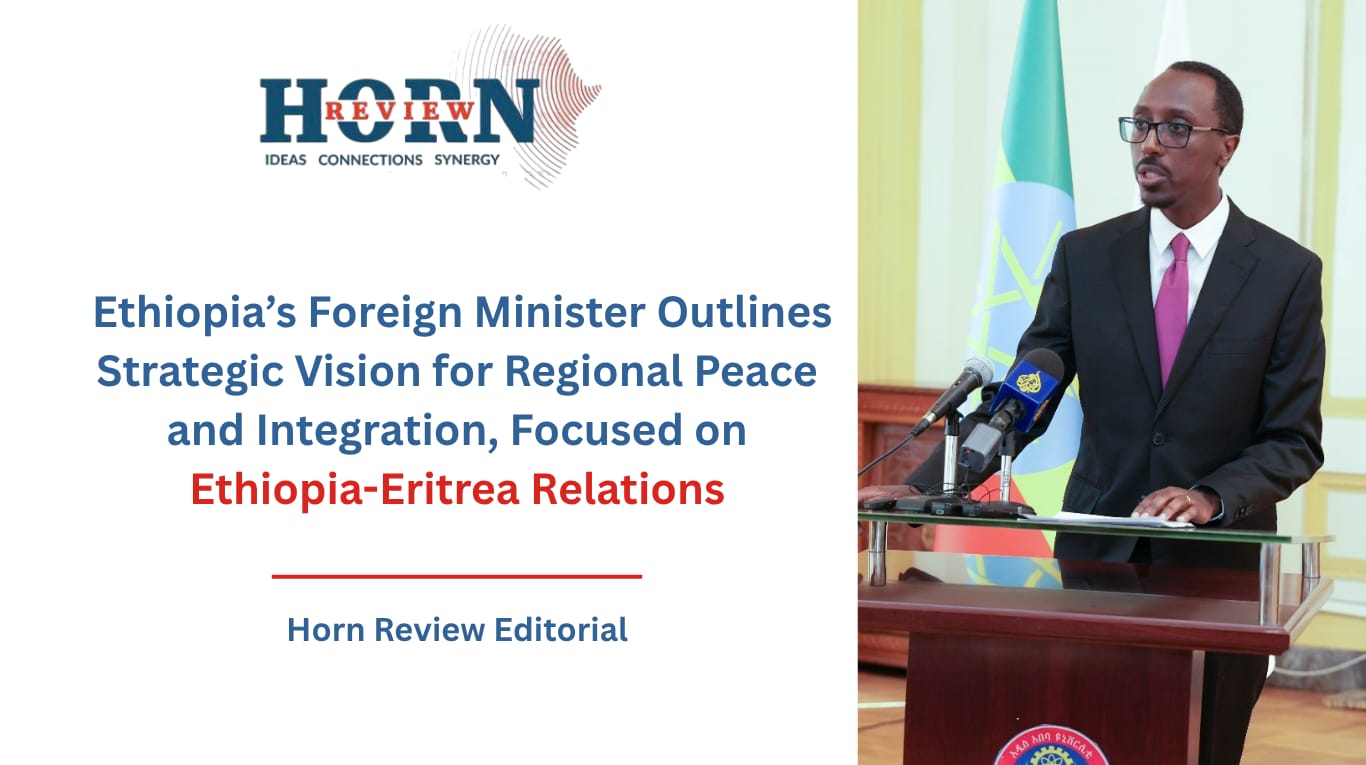
13
Nov
Ethiopia’s Foreign Minister Outlines Strategic Vision for Regional Peace and Integration, Focused on Ethiopia-Eritrea Relations
In a Foreign Policy Policy Forum organized by Horn Review, in collaboration with Addis Ababa University, Ethiopia’s Foreign Minister articulated the government’s policy and perspectives on recent developments in the Horn of Africa, with particular emphasis on the country’s complex relationship with Eritrea. Speaking at Addis Ababa University, Ras Mekonnen Hall – to an audience of diplomats, academics, and policy experts – he framed Ethiopia’s vision for regional peace, integration, and self-reliance amid ongoing instability.
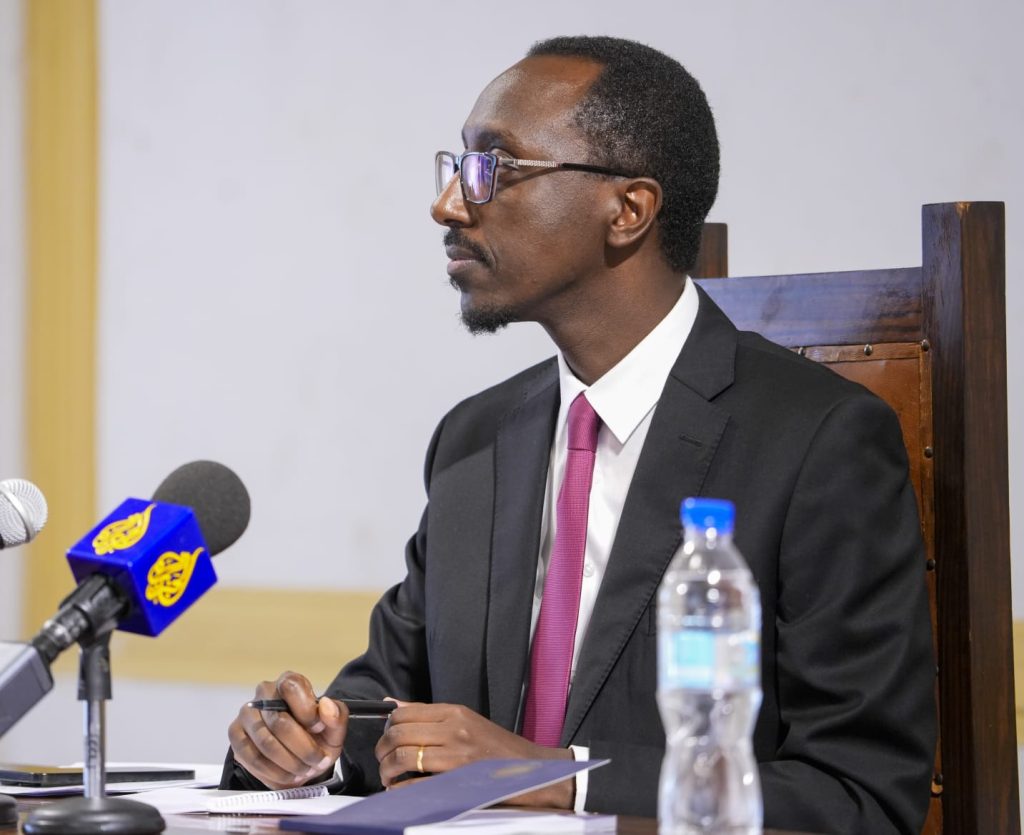
The Minister acknowledged that the Horn of Africa is navigating a period of significant turbulence, with challenges to peace and security present across nearly every country in the region. He emphasized, however, that the region’s long-term potential remains considerable, noting its abundant natural resources, fertile land, and a resolute demography capable of innovation and enterprise. By highlighting these assets, he positioned the region not merely as a zone of conflict, but as a space for strategic development and cooperative growth.
Turning to Ethiopia’s relationship with Eritrea, the Minister traced the historical trajectory of the two countries through federation, unification, secession, and recurring conflict over the past seventy-plus years. He described the 1998–2000 border war, in which the Eritrea-Ethiopia Claims Commission determined Eritrea to be the aggressor, as a pivotal episode that ended formally with the Algiers Agreement but left the nations locked in an enduring state of “no-peace, no-war” for nearly two decades. In framing this history, he noted that the contemporary tensions cannot be understood simply as disputes over borders or ports, but are rooted in deeper political, institutional, and historical factors that have long shaped bilateral relations.
Ethiopia’s decision in 2018 to pursue rapprochement with Eritrea, described by the Foreign Minister as “the courageous step of breaking the deadlock,” was undertaken out of goodwill and a desire to restore Eritrea’s standing in the international community. While the initiative was short-lived, it revealed the strong aspiration among the peoples of both countries to live in peace and harmony. This sentiment, however, was not mirrored by the Eritrean government, which has maintained a hostile posture toward normal neighborly relations.
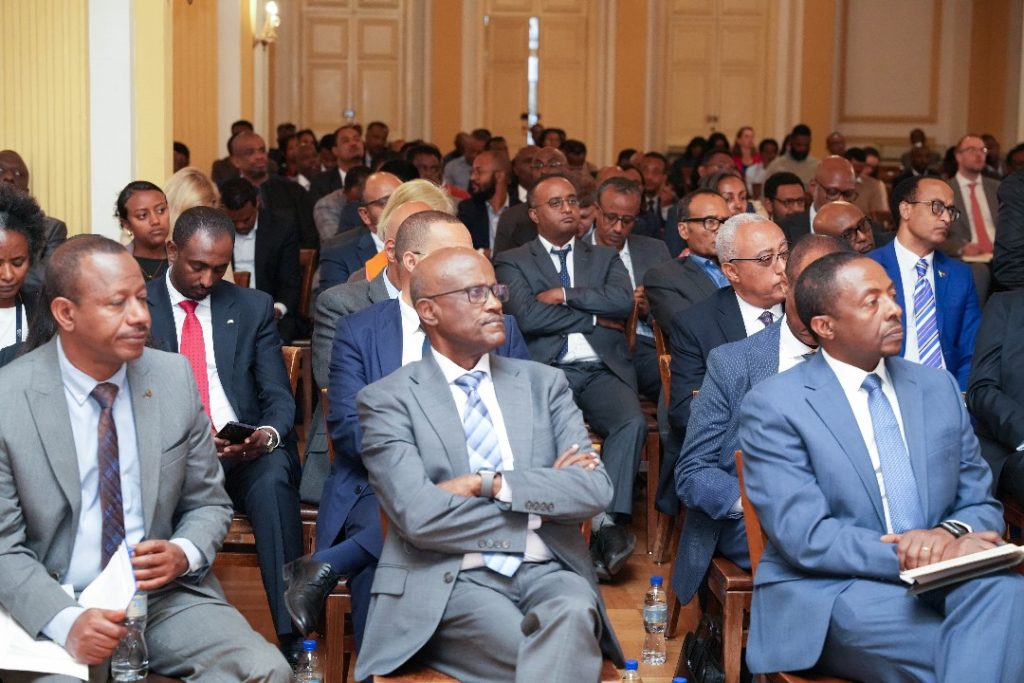
The Minister emphasized that the roots of the long-standing conflict go beyond border disputes or maritime ambitions. Among the underlying factors, Eritrea’s attempt “to enjoy the status of a sovereign state without the consequences and responsibilities such a status entails” and its repeated interference in Ethiopia’s domestic affairs have been significant sources of tension. The Eritrean leadership has also positioned itself “as an instrument for all forces having hostile intentions against Ethiopia,” contributing to the difficulty of achieving peaceful coexistence.
He further highlighted the “Isayas Doctrine,” a principle assuming that Eritrea’s continued statehood depends on Ethiopia’s insecurity, fragmentation, and instability. This perspective has shaped Eritrea’s regional conduct for decades, reinforcing a strategic orientation in which Eritrea’s security is linked to Ethiopia’s vulnerability rather than mutual cooperation.
The Minister also drew attention to structural characteristics of the Eritrean state. He described it as “anomalous and unbalanced,” with a militarized system that places citizens entirely under state authority. While Eritrea maintains a highly developed coercive capacity, its use of state resources for socio-economic development is minimal. This has led to large-scale emigration of young Eritreans due to indefinite military service, and the absence of an economic development focus has hindered the possibility of constructive cooperation with neighboring states.
Turning to Ethiopia’s own priorities, the Foreign Minister highlighted the country’s deliberate choice of restraint in the face of ongoing provocations. He noted that while Ethiopia possesses sufficient grounds for defensive action, it has refrained from engaging militarily, emphasizing that this restraint “should not and cannot be taken as being indefinite and unconditional,” especially considering Eritrean incursions into Ethiopian territory and support for armed groups.
The Minister outlined Ethiopia’s broader regional vision, centered on economic integration and mutual prosperity. He described the Horn of Africa as a single geo-economic and cultural space, united by shared history and common destiny, and stressed that the region can only achieve its full potential if its countries maintain strategic autonomy while resisting both external domination and internal hegemony. In invoking the “spirit of Gundet and Gura,” he emphasized the importance of safeguarding the sovereignty of Horn nations in the 21st century.
Focusing on Ethiopia’s relationship with Eritrea, he highlighted the deep historical, cultural, and linguistic ties that connect the two populations. While recognizing that they are distinct nations with separate governments and borders, he emphasized that these connections provide a strong foundation for peaceful coexistence and collaboration.
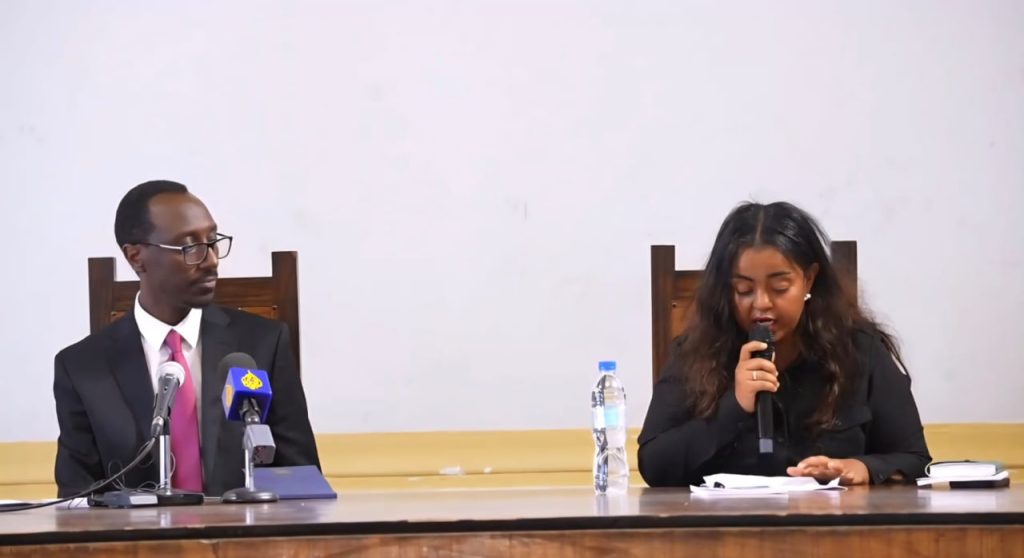
As a practical pathway toward cooperation, the Minister proposed beginning with a Free Trade Area to facilitate the seamless movement of goods, services, capital, and people, which could later expand into joint investment in strategic infrastructure. Within this framework, Ethiopia’s aspiration for durable and secure access to the sea could be pursued in a manner that benefits both countries. He noted that the longstanding pattern of conflict between Ethiopia and Eritrea calls for an “institutionalized framework of deep and multisectoral cooperation” as the most sustainable approach to building trust and stability.
The Minister concluded his address with an appeal for dialogue, imagination, and courage. Drawing on the reflections of the late Ethiopian diplomat and author Zewde Reta on the long history of the “Eritrean affair,” he called on both peoples to envision a new future. He emphasized that this generation of Ethiopians and Eritreans must look beyond historical grievances and imagine “a different reality, a new way of working and living together to attain shared prosperity.”
He also highlighted the role of the international community in supporting Ethiopia’s vision for a peaceful and integrated Horn of Africa, stressing that the region cannot afford “another 30 years of conflict, poverty, displacement, and chaos.” At the same time, he framed the opportunity for change as one of agency and responsibility, noting that the peoples of the Horn should not be “captives to our history but masters of our future destiny.”
Ending on a note of measured optimism, the Minister reaffirmed Ethiopia’s commitment to dialogue and peaceful engagement. He conveyed a realistic but hopeful approach to regional challenges, stating that the country seeks to “prepare for the worst, hope for the best, and work for what is attainable – if not today, perhaps tomorrow or the day after tomorrow.”
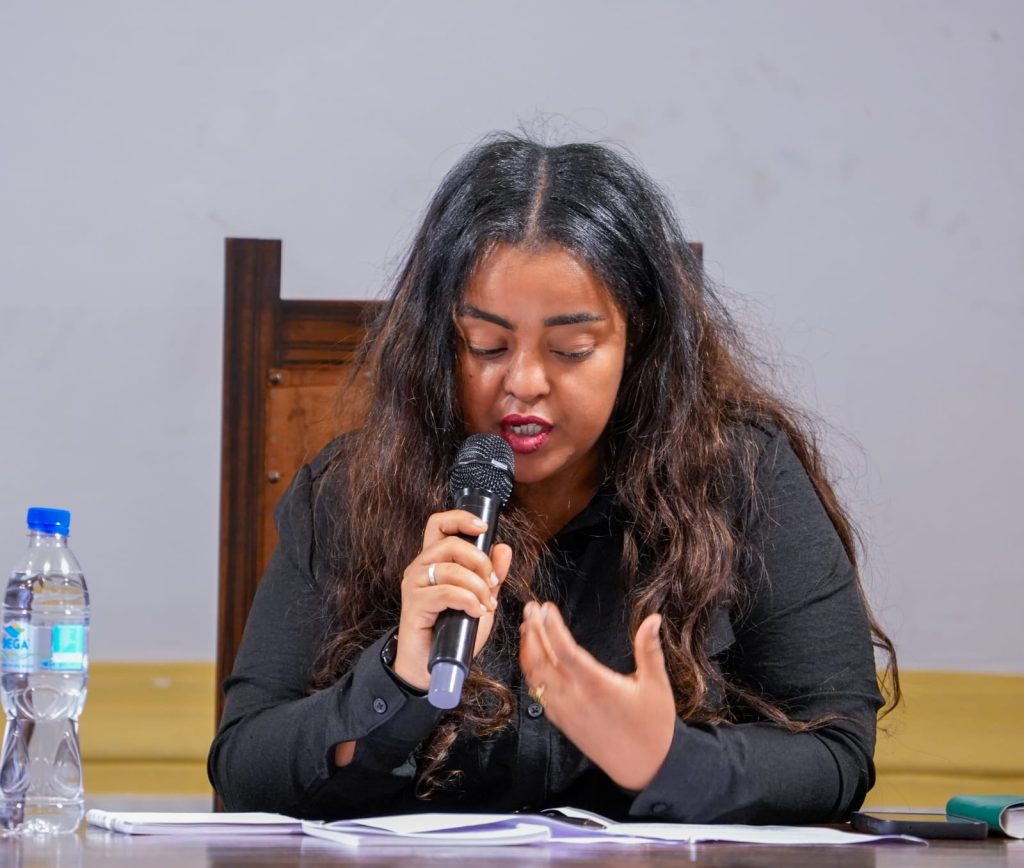
Following the address, participants engaged in a moderated Q&A session chaired by Horn Review Executive Director, Blen Mamo. In response to a question from the French Ambassador to Ethiopia regarding the role of the international community in de-escalating tensions with Eritrea, the Foreign Minister emphasized that the global community must publicly and unequivocally condemn any violations of Ethiopia’s territorial integrity by Eritrean forces. He underscored the necessity of sustained dialogue and cautioned against allowing Eritrea’s “spoiler” behavior to continue with impunity while expecting Ethiopia to exercise indefinite restraint. Dr. Gedion further highlighted the critical role of public diplomacy, noting that the challenge in resolving the dispute stems not only from a lack of political will but also from the absence of robust institutional frameworks within Eritrea, which complicates formal negotiations.
Turning to the issue of port access, the Minister stressed that Assab Port remains Ethiopia’s foremost priority, not merely for historical or legal rectification, but because the Ethiopian state has invested significantly both before and after Eritrea’s secession. He recalled that Ethiopia lost access to the port 27 years ago when Eritrea declared war in 1998 and emphasized that the country will not allow itself to face similar vulnerability in the future. He also reiterated the Prime Minister’s parliamentary address questioning the legitimacy of the process through which Ethiopia was severed from its inherent access to the sea, while highlighting Ethiopia’s strategic intent to diversify port access through transit arrangements with other coastal states in the region.
Dr. Gedion also emphasized that this relationship between the Ethiopian and Eritrean people has not been given its due course and that the will for reconciliation exists among the peoples themselves. “There is no need to reinvent public will on both sides to reintegrate the two peoples in a mutually respectful and beneficial manner,” he noted. When asked about the next steps if diplomacy fails as a Plan A, he stressed Ethiopia’s determination to avoid war by all means necessary, noting that the consequences of conflict would be devastating for the entire region. On the matter of maritime access, the Minister reiterated that Ethiopia’s pursuit of access to the sea is “fair, reasonable, and legitimate”, reflecting the country’s economic imperatives, demographic realities, and historical context.
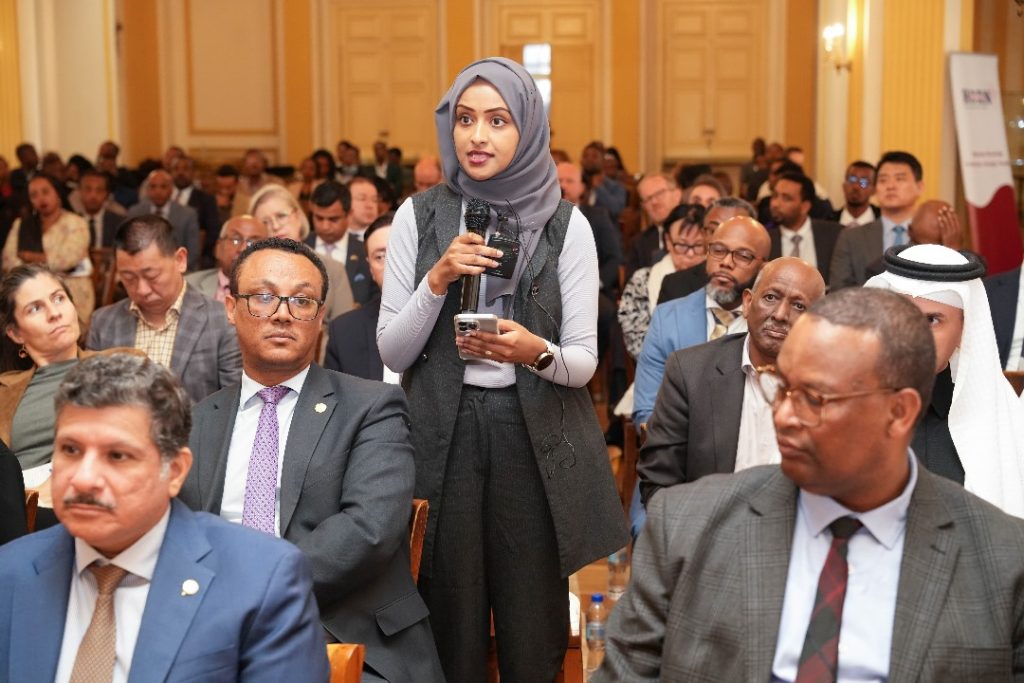
The Minister then addressed broader regional security concerns. On Sudan, Dr. Gedion affirmed Ethiopia’s support for all initiatives aimed at achieving stability, stressing that a stable Sudan is in Ethiopia’s long-term interest. Regarding Egypt, he noted that while Ethiopia is monitoring developments closely, it is not unduly influenced by rhetoric or posturing. He advised Egyptian counterparts to acknowledge Ethiopia’s emergence and to engage in constructive dialogue aimed at mutually beneficial outcomes rather than confrontation. The moderated dialogue further explored critical dimensions of regional diplomacy, including maritime strategy, economic cooperation and regional integration.

In his closing remarks, the President of Addis Ababa University, Dr Samuel Kifle, reaffirmed the institution’s commitment to fostering intellectual platforms that contribute to regional peace and development discourse. Horn Review emphasised that it will continue to facilitate informed policy conversations and independent analysis on key regional issues. The Forum concluded with a consensus on the importance of sustained engagement among governments, policy makers, academia, and civil society, underscoring Ethiopia’s proactive role in shaping a peaceful, cooperative, and integrated Horn of Africa.
By Horn Review Editorial

